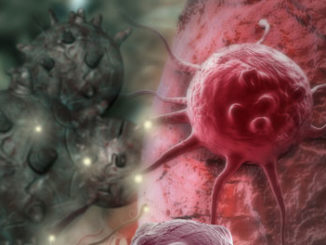Explore the many ways in which different types of food and drink have potential to influence epigenetic marks on DNA and, ultimately, health outcomes. Learn how broccoli may be able to epigenetically reduce cancer risk, how an assortment of herbs could boost health, and even the ways a high fat, low carb diet may be able to boost mental ability. This collection of cutting-edge nutriepigenetic research studies aims to break down complex dietary epigenetic findings and understand its potential application in our daily life.
Check out our comprehensive e-book Epigenetics in Life: What We Eat to learn more about how different foods influence health.
A high-fat, high-sugar diet during pregnancy could be connected to ADHD in children, suggests new research. A mother’s diet may adjust epigenetic marks that attach to her child’s DNA, potentially increasing the odds that he or she will develop ADHD. Attention-deficit/hyperactivity disorder, or ADHD, has become a prevalent condition in modern society as researchers attempt to explain its dramatic rise. As of 2011, around 6.4 million children ages 4 to 17 have been diagnosed with ADHD according to the CDC. [more…]
A mixture of herbs used in traditional Chinese medicine may be able to reduce inflammation by adding and removing epigenetic marks on DNA, suggests a study published in Evidence-Based Complementary and Alternative Medicine. This alternative medicinal mixture, termed “Wutou decoction”, consists of six different herbs that have been widely used in the traditional Chinese medicine community to alleviate arthritis and other diseases. Now, researchers believe it may have an effect on epigenetic mechanisms known as DNA methylation and histone modifications, [more…]
Vitamins may not only benefit your health, but also remove epigenetic memory or marks on your DNA. A new study conducted by an international group of researchers found that vitamins A and C work in different ways to erase methyl tags present on genes. These findings could help to progress new developments in regenerative medicine and bring us closer to understanding how we may be able to reprogram cells from one type to another. Because all cells in the body [more…]
Eating more plant flavones could reduce your cancer risk, suggests a recent study. By inhibiting epigenetic marks that play a central role in the formation of cancer, some foods may be able to help stave off this widespread disease. According to the American Cancer Society, there will be an estimated 1.6 million new cancer cases in 2016. Interestingly, many foods that are easily accessible have been shown to elicit epigenetic effects that may actually protect against the development of cancer. [more…]
We know that a predisposition to become overweight is found in our genes. Now, we’re starting to learn that epigenetics also has a hand in determining whether a person will become fat or lean. New research is uncovering the possibility of an epigenetic switch that is, interestingly, either “on” or “off”. A group of researchers at the Max Planck Institute of Immunobiology and Epigenetics in Freiburg published their study in Cell. More than one-third of individuals are considered to be [more…]
We’ve all heard of the risks of the BPA, or Bisphenol A, a chemical used to make durable plastics. BPA can be found in baby bottles, toys, water bottles, and the lining of food cans, but it has also leached into the water and air, travelling around the world. Research has shown this endocrine disruptor can cause adverse health effects during development and impact the reproductive system by mimicking estrogen, binding to nuclear estrogen receptors and even androgen receptors. It [more…]
If a mother with diabetes drinks green tea during pregnancy, could it improve her child’s development? For years, pregnant women have been advised to take probiotics and antioxidants, such as folic acid, to help improve pregnancy outcomes. However, the precise way these supplements work continues to be up for debate. Now, epigenetic evidence is mounting in regard to the benefits of certain antioxidants and the potential underlying biological mechanisms. New research published in the American Journal of Obstetrics & Gynecology [more…]
Every kid reaching for the junk food has heard mom and dad’s warning, “You are what you eat!” But parents should be advised that children can now offer a humbling retort, “No, I’m what YOU ate!” A new study by scientists from the Institute of Experimental Genetics at Helmholtz Zentrum München (Neuherberg, Germany) suggests that the metabolic consequences of mom and dad’s dietary habits can be inherited by their kids via epigenetic mechanisms. So in addition to inheriting a genetic [more…]
We’ve often heard that certain foods might have the power to reduce our risk of disease. There’s Epigallocatechin gallate (EGCG), a major polyphenol found in green tea, that may help prevent tumor growth, or DHA, one of the major omega-3 fatty acids found in fish and nuts, that could protect neurons and perhaps lower the chances of developing a neurodegenerative disease. Now, even more evidence suggests that cruciferous vegetables may be able to slow the cell growth of one of [more…]
New research has helped to clear up the function of a well-known tumor suppressor gene, RB, which prevents aberrant cell growth. Researchers from the University of Illinois at Chicago and Universitat Pompeu Fabra in Barcelona have found that pRb, or retinoblastoma protein, is a tumor suppressing protein encoded by RB that maintains proper functioning of a cell’s metabolism. By epigenetically modifying histones, pRb works to control tumor cell growth. The study was published in Genes and Development. Tumor suppressor proteins [more…]











